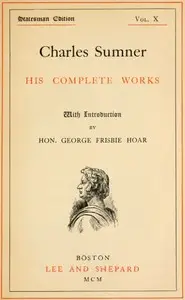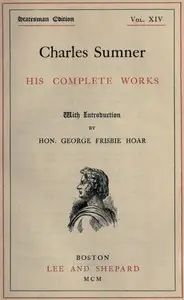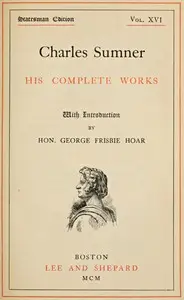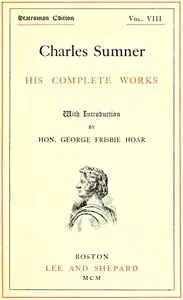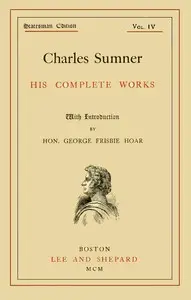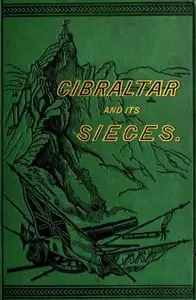"The Duel Between France and Germany" by Charles Sumner is a historical reflection examining the Franco-Prussian War, viewing it as a large-scale duel rooted in outdated concepts of national honor. The lecture, initially presented in Boston, analyzes how seemingly insignificant issues escalated into a devastating conflict fueled by the political ambitions of leaders such as France's Louis Napoleon, while also focusing on the irrationality of resorting to war over minor disputes. The author criticizes the inherent brutality of armed conflict and advocates for a future where nations resolve disputes through arbitration rather than violence, thereby positioning the war as a pivotal moment necessitating a move towards more civilized, peaceful international relations.

The Duel Between France and Germany
By Charles Sumner
Witness the tragic unraveling of two nations as they plunge into war over trivial matters, revealing the destructive absurdity of national ego and the urgent need for peaceful resolutions.
Summary
About the AuthorCharles Sumner was an American lawyer, politician, and statesman who represented Massachusetts in the United States Senate from 1851 until his death in 1874. Before and during the American Civil War, he was a leading American advocate for the abolition of slavery. He chaired the Senate Foreign Relations Committee from 1861 to 1871, until he lost the position following a dispute with President Ulysses S. Grant over the attempted annexation of Santo Domingo. After breaking with Grant, he joined the Liberal Republican Party, spending his final two years in the Senate alienated from his party. Sumner had a controversial and divisive legacy for many years after his death, but in recent decades, his historical reputation has improved in recognition of his early support for racial equality.
Charles Sumner was an American lawyer, politician, and statesman who represented Massachusetts in the United States Senate from 1851 until his death in 1874. Before and during the American Civil War, he was a leading American advocate for the abolition of slavery. He chaired the Senate Foreign Relations Committee from 1861 to 1871, until he lost the position following a dispute with President Ulysses S. Grant over the attempted annexation of Santo Domingo. After breaking with Grant, he joined the Liberal Republican Party, spending his final two years in the Senate alienated from his party. Sumner had a controversial and divisive legacy for many years after his death, but in recent decades, his historical reputation has improved in recognition of his early support for racial equality.








